Year published :September 2017
Pages :304 pp.
Size :15 x 23 cm.
Black & White illustrations :7 illustrations, 1 map
Rights :Thailand, Myanmar, Cambodia, Laos, Vietnam
ISBN: 9788776942250
Khaki Capital: The Political Economy of the Military in Southeast Asia
by NIASEdited by Paul Chambers and Napisa Waitoolkiat
Although Southeast Asia has seen the emergence of civilian rule, the military continues to receive a large chunk of the national budget and, with significant assets and economic activities, often possesses enormous economic clout – enhancing its political power while hindering democratization or civilian rule. The political economy of the military in less developed countries is thus a crucial subject area in terms of democratization. This study examines such ‘khaki capital’ in seven Southeast Asian cases – Thailand, Myanmar, Vietnam, Laos, Cambodia, the Philippines and Indonesia. Each chapter analyses the historical evolution of khaki capital in the given country case; the role of internal and external factors (e.g. military unity and globalization) in this trajectory; and how the resulting equilibrium has affected civil-military relations. This work is important for understanding how and why military influence over parts of the economy in Southeast Asia has remained an impediment to achieving civilian control and democratization. Ultimately, this book tells the story of how militaries in Southeast Asia have benefited economically and the extent to which such gains have translated into the leveraging of political power.
Highlights
- First book to scrutinize the linkage between income sources of militaries and their political power in Southeast Asia.
- Explores the military-industrial complex in the region.
- Focuses on how much economic clout Southeast Asian militaries have had and how this has influenced civil–military relations.
About the Editors
Paul Chambers lectures at the College of ASEAN Community Studies, Naresuan University, and is a research fellow at the Cambodian Institute for Cooperation and Peace and the Peace Research Institute Frankfurt. He has written extensively on security sector reform, democracy and peace studies, especially in SE Asia.
Napisa Waitoolkiat is Director of the College of ASEAN Community Studies, Naresuan University. Her research focuses upon emerging democracies in several areas including electoral politics, civil–military relations, political accountability, corruption, democratization, and human security in Southeast Asia.
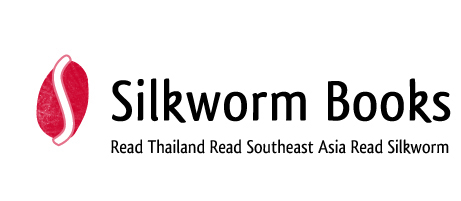
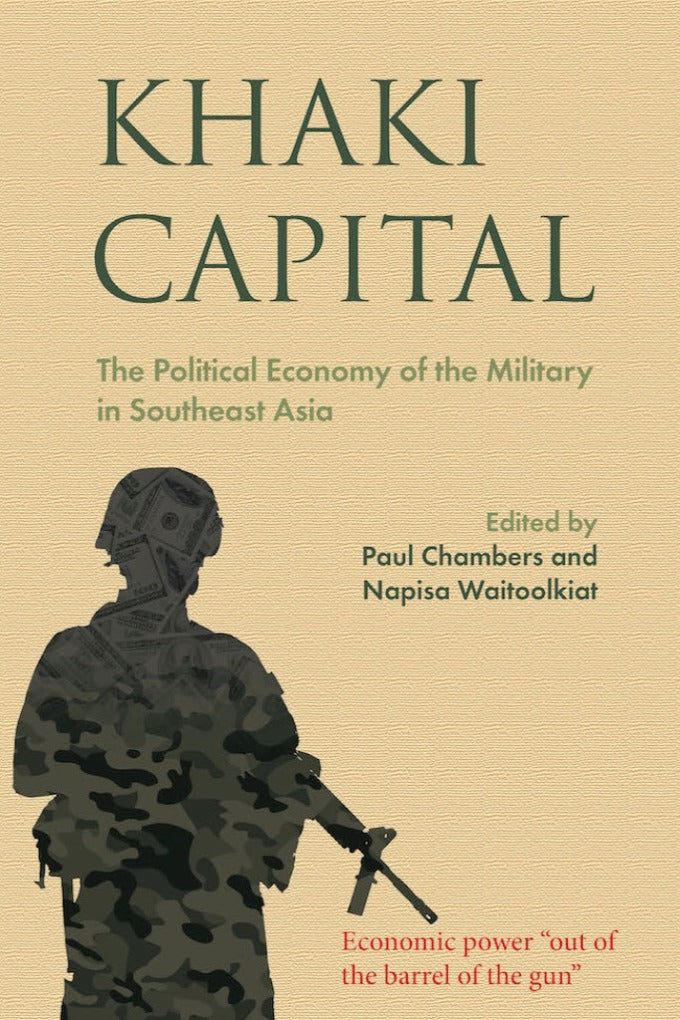




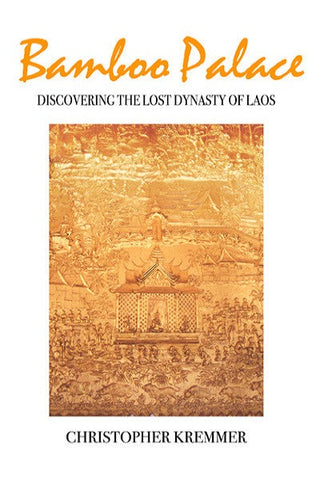
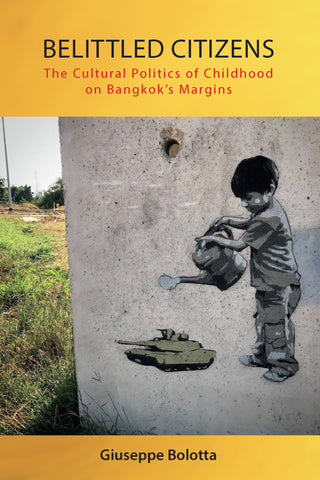

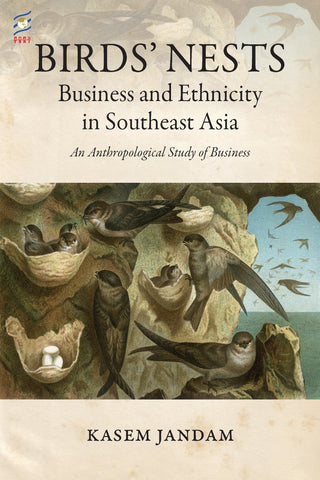

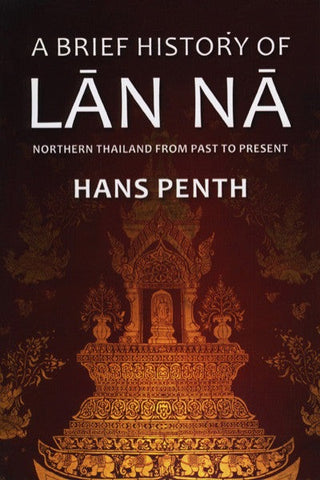
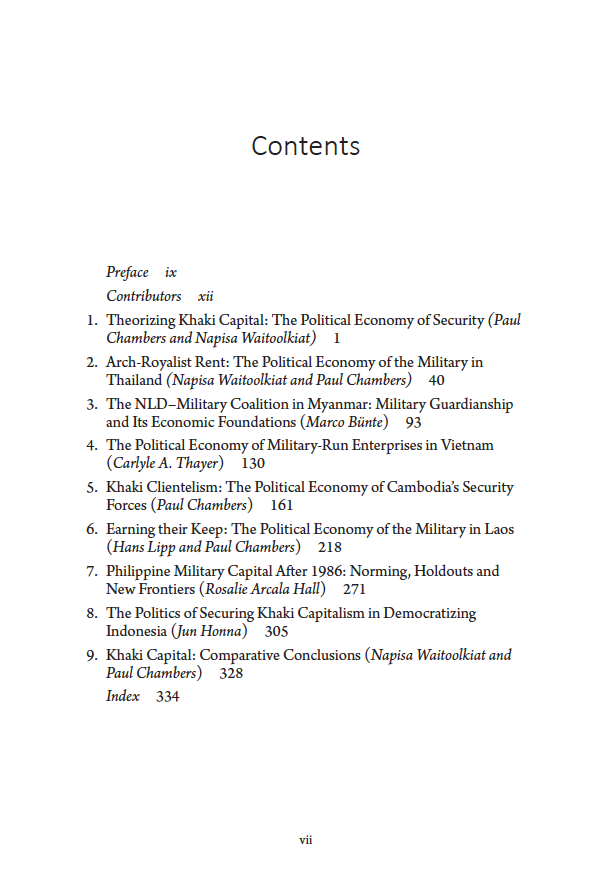
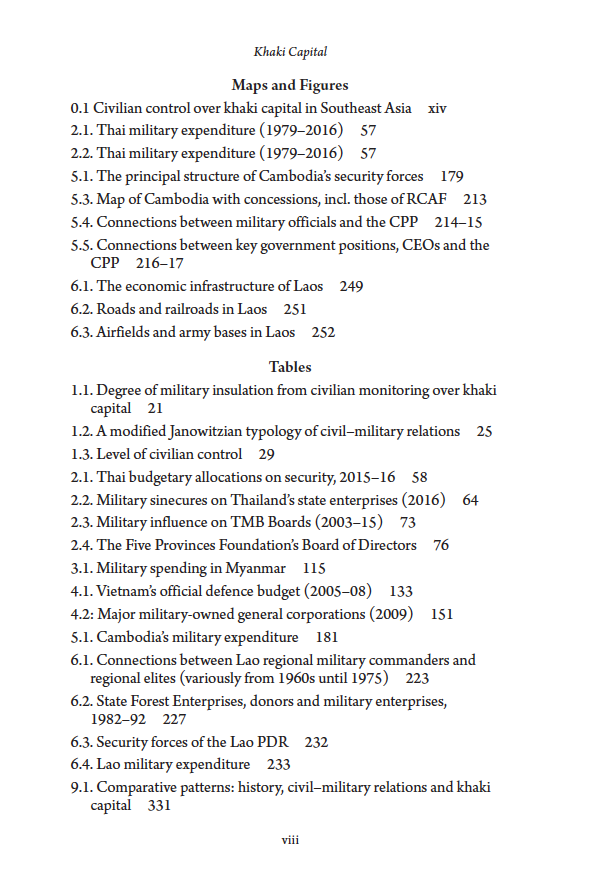
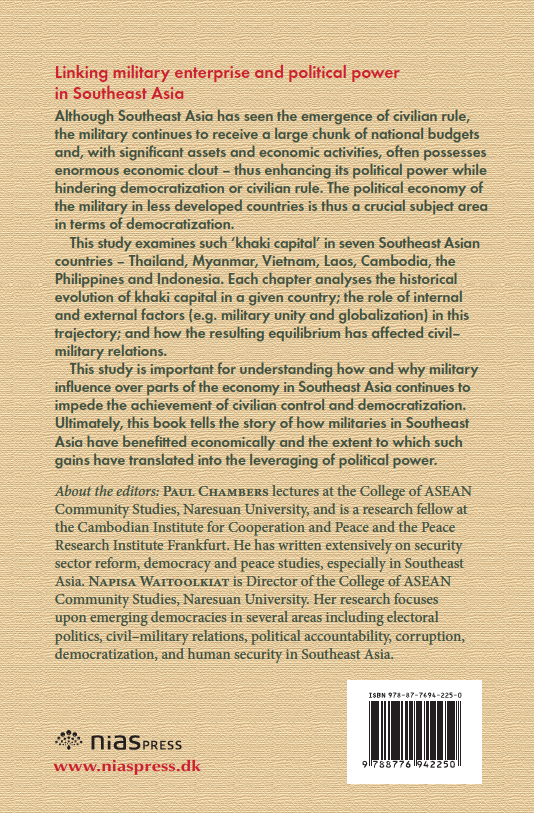
Share this item: